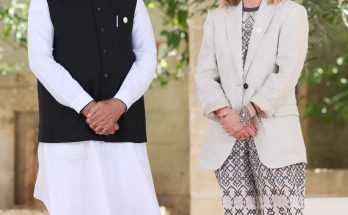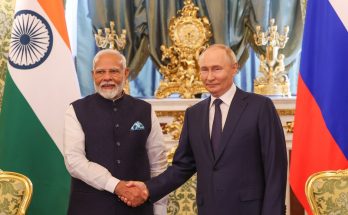
DUBAI: The global climate jamboree in Dubai remains stuck in a deadlock over the future of fossil fuels, with a new draft of the global stocktake (GST) text omitting any mention of the contentious issue. Eminent climate leaders and activists decried COP28 as a failure as the lack of consensus on phasing out fossil fuels will adversely impact efforts to arrest global warming to 1.5°C under the Paris Agreement.
COP28 President Sultan Al-Jaber exhorted the attending countries to deliver “the highest ambition on all items, including on fossil fuel language.” The new draft of the COP28 agreement, published by the United Arab Emirates’ presidency of the summit, did not refer to a “phase out” of all fossil fuels, which was included in a previous draft.
Instead, the new draft outlined various options that countries “could” deploy to slash emissions, including: “reducing both consumption and production of fossil fuels, in a just, orderly and equitable manner so as to achieve net zero” by or around mid-century. The roster of actions listed included tripling renewable energy capacity by 2030; “rapidly phasing down unabated coal”; accelerating zero and low emissions technologies, including, inter alia, renewables, nuclear, abatement and removal technologies, including such as carbon capture and utilisation and storage, and low carbon hydrogen production.
The text has strengthened the language on coal by now adding “rapidly phasing down unabated coal” and “limitations on permitting new and unabated coal power generation.” The failure to even mention oil and gas in the document is widely seen as a triumph of the powerful oil and gas lobby which has succeeded in controlling the Dubai COP.
India will be watching closely how the debate on coal evolves post-COP28. Indian negotiators at COP28 opposed the phase-out of fossil fuels on grounds of differential needs of developing countries. Besides, India continues to depend heavily on coal and other fossil fuels for power production. Coal-fired power accounts for about 80% percent of India’s electricity supply.

In his address at COP28 on December 9, India’s Environment Minister Bhupender Yadav demanded “equity and justice” in U.N. climate negotiations and argued that rich countries should be leading global climate action. “India firmly believes that equity and climate justice must be the basis of global climate action,” Yadav told the summit.
At the high-level segment of COP on December 1, India’s Prime Minister Narendra Modi, who was among the few world leaders who attended COP28, argued passionately for protecting the interests of the Global South in global climate negotiations. “Over the past century, a small section of humanity has indiscriminately exploited nature,” said PM Modi, a passionate advocate of renewable energy and co-founder of the International Solar Alliance. “However, entire humanity is paying the price for this, especially people living in the global south.”

(Manish Chand, is CEO, Centre for Global India Insights, a think tank focused on global affairs and Founder, India Writes Network and India and the World magazine. He is in Dubai to report on and analyse COP28)
Author Profile

- Manish Chand is Founder-CEO and Editor-in-Chief of India Writes Network (www.indiawrites.org) and India and World, a pioneering magazine focused on international affairs. He is CEO/Director of TGII Media Private Limited, an India-based media, publishing, research and consultancy company.
Latest entries
 India and the WorldJuly 9, 2024Defying West, India sets $100 billion trade target with Russia
India and the WorldJuly 9, 2024Defying West, India sets $100 billion trade target with Russia India and the WorldJuly 5, 2024India at SCO: Takes swipe at Pakistan for cross-border terror, pushes alternative to BRI
India and the WorldJuly 5, 2024India at SCO: Takes swipe at Pakistan for cross-border terror, pushes alternative to BRI India and the WorldJune 14, 2024Modi’s Day 1 in Italy: Bonding with Britain, France
India and the WorldJune 14, 2024Modi’s Day 1 in Italy: Bonding with Britain, France India and the WorldJune 13, 2024G7 summit in Italy: Modi to showcase India as leader of Global South
India and the WorldJune 13, 2024G7 summit in Italy: Modi to showcase India as leader of Global South






